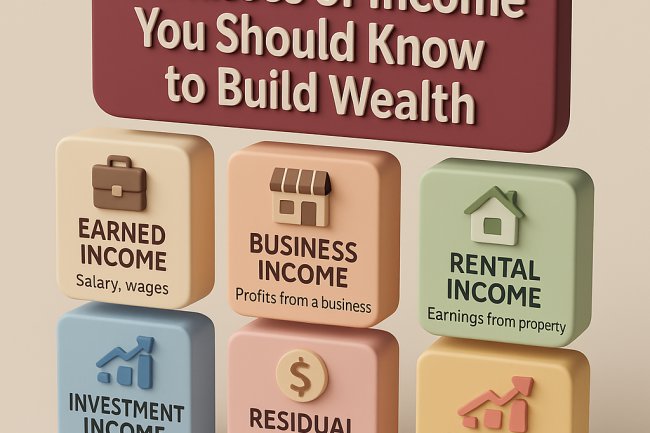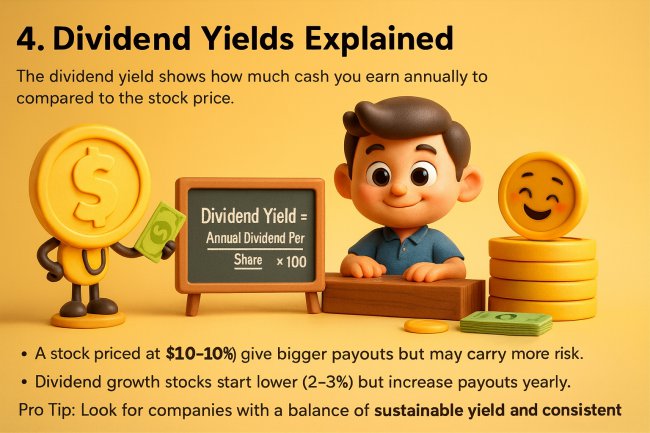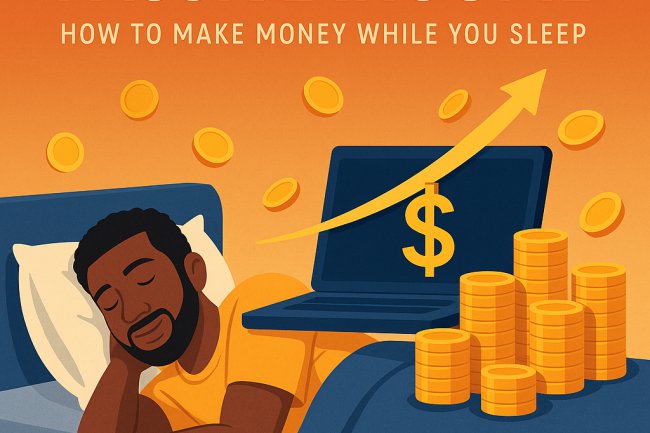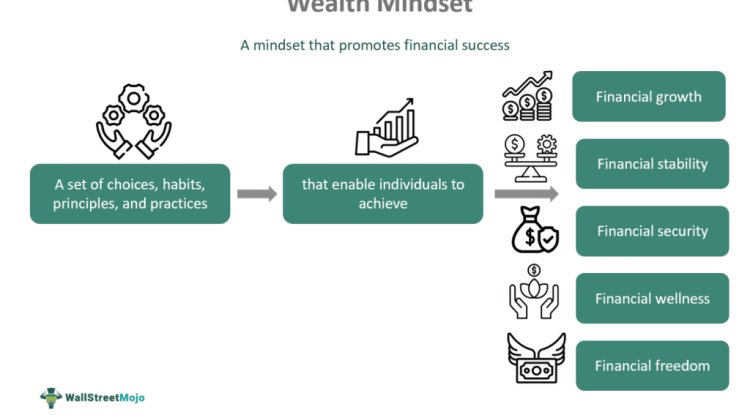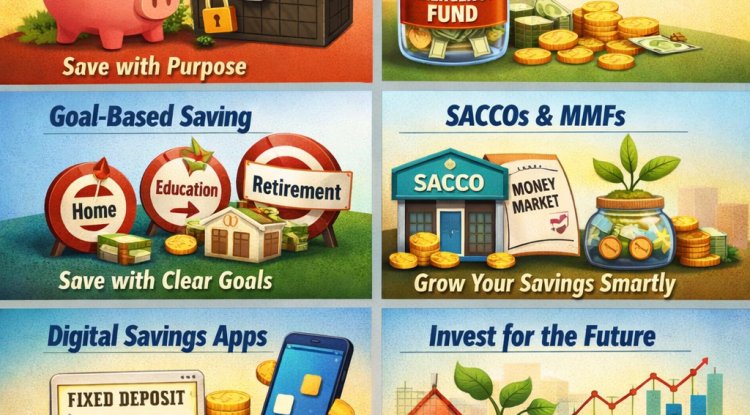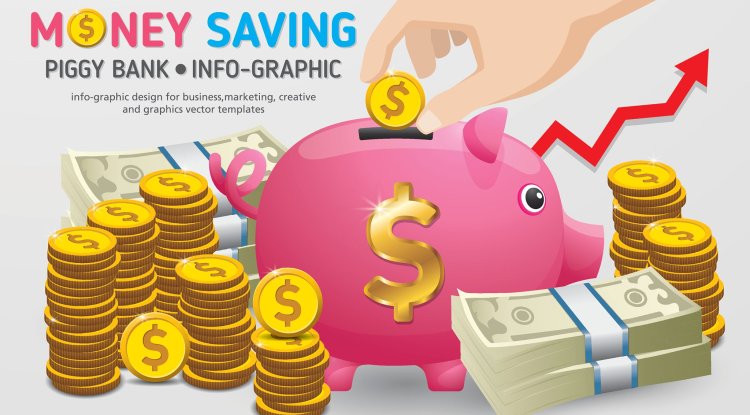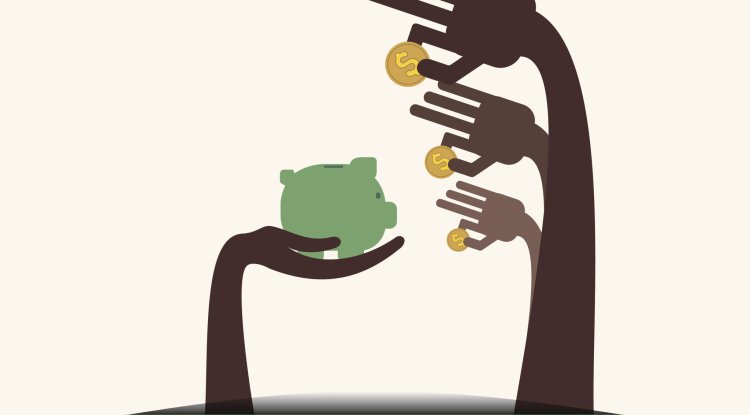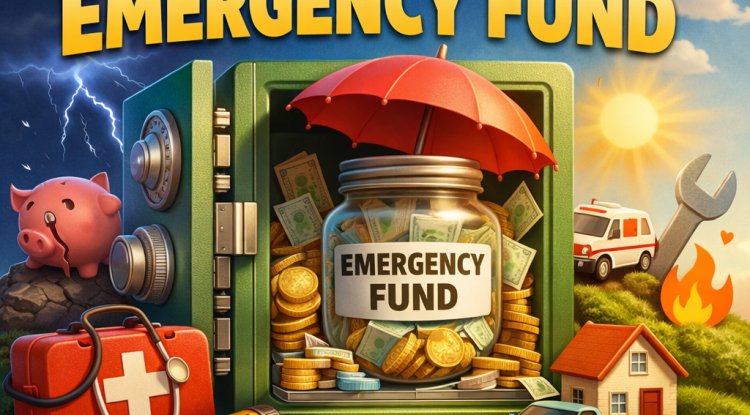New Ways of Making Money in 2025: The Next Global Wealth Revolution
Discover innovative ways to make money in 2025 — from AI, DeFi, and remote work to green business and digital entrepreneurship worldwide.
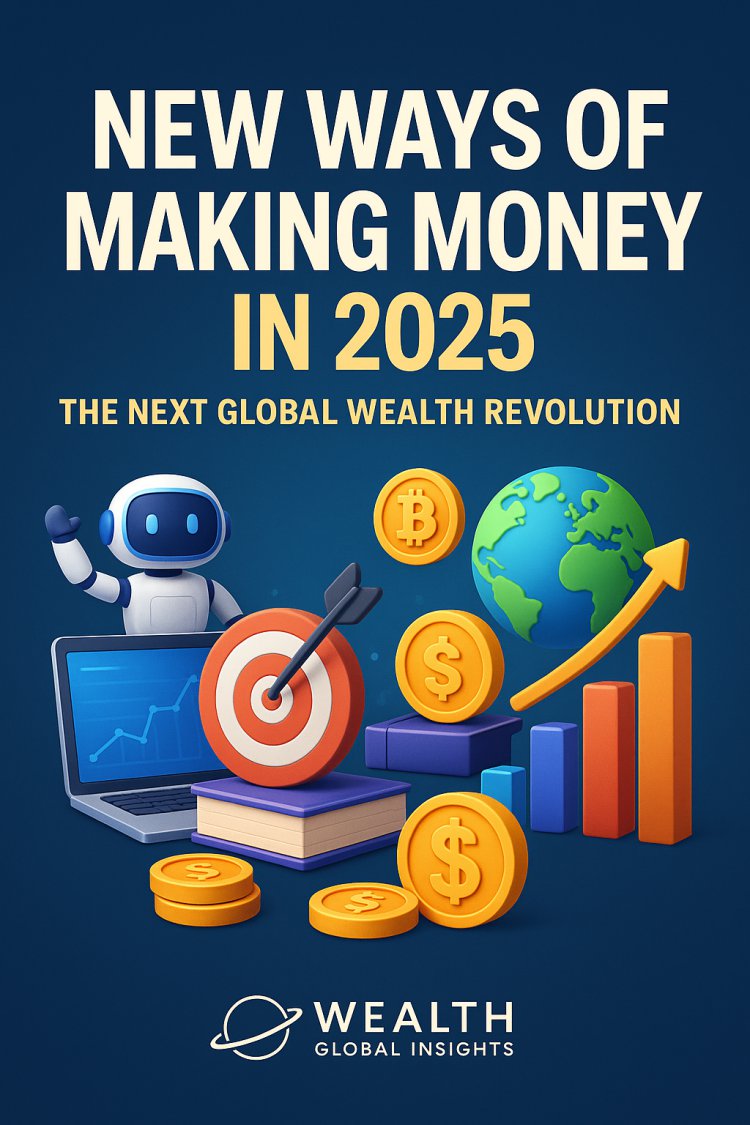
Introduction: The World Is Entering a New Financial Era
The year 2025 marks a radical turning point in how people earn money. We are witnessing the rise of a new digital economy — one driven not just by hard work but by innovation, information, and intelligence.
From artificial intelligence and decentralized finance to remote entrepreneurship and micro-education, the 2025 global marketplace rewards creativity, adaptability, and digital literacy.
In this new wealth era, the traditional rulebook has changed. You no longer need a physical office to build a business, nor do you need a million dollars to invest. What you need is the right mindset, the right tools, and the right timing.
This in-depth guide explores the top new ways of making money in 2025, blending global trends with African innovation and Christian-based principles of stewardship and vision.
1. Artificial Intelligence: Turning Code Into Cash
In 2025, artificial intelligence (AI) has evolved from a futuristic concept into a practical tool of wealth creation. Millions of people are earning directly or indirectly from AI-powered platforms, and those who understand its potential are already ahead.
The Rise of AI Micro-Entrepreneurs
Individuals across the world are building automated systems that write, design, analyze data, and even create music. Freelancers are packaging AI services — from chatbot creation to content automation — and selling them on global platforms like Upwork, Fiverr, and Toptal.
AI tools like ChatGPT, Jasper, Midjourney, and ElevenLabs are helping small entrepreneurs produce what used to require entire teams. A single person can now generate full marketing campaigns, ebooks, or voiceovers in hours.
The Smart Opportunity
The opportunity is not in competing with AI — it’s in collaborating with AI. Those who learn how to prompt, train, and deploy AI tools become value creators.
For example, African consultants are now offering AI-based data analytics to local SACCOs, governments, and SMEs, while European freelancers are building AI chatbots for global clients.
The future belongs to those who treat AI as a business partner, not a competitor.
2. The Creator Economy 2.0: Building Wealth Through Influence
The world of content creation has matured into a structured global industry worth over $250 billion. In 2025, the Creator Economy 2.0 is no longer about fame — it’s about monetization, authenticity, and niche dominance.
Monetization Beyond Ads
Platforms like YouTube, TikTok, and Instagram now pay creators not just for views, but for engagement and education. Creators earn through affiliate marketing, brand sponsorships, digital products, and premium communities.
Creators who focus on specific niches — finance, fitness, self-development, faith, entrepreneurship, or sustainability — are building loyal global audiences.
A small creator with 10,000 followers can now earn more than someone with 1 million followers, provided their audience is engaged and targeted.
The Africa and Global Connection
Creators from Kenya, Nigeria, South Africa, and Ghana are redefining storytelling by merging global business insights with local realities. Finance educators, motivational speakers, and digital coaches are building thriving YouTube channels and monetized Facebook pages.
The world is now borderless — and your story can be your most valuable asset.
3. Decentralized Finance (DeFi) and Tokenized Wealth
The blockchain revolution is entering its mature phase. While the early crypto wave was speculative, 2025 DeFi is about real-world utility.
Tokenization of Assets
Real estate, art, music, and even small businesses are being tokenized — meaning investors can buy fractional shares using blockchain platforms. Instead of needing $50,000 to buy property, investors can start with as little as $50 by purchasing digital shares.
Yield, Staking, and Passive Income
DeFi allows users to earn interest by lending, staking, or providing liquidity on decentralized platforms. These systems reward participation in the global digital economy and remove the need for intermediaries.
Ethical and Responsible Investing
For believers and value-driven entrepreneurs, this space also opens conversations about ethical blockchain investing — where financial innovation aligns with stewardship, transparency, and justice.
The smart investor learns the principles of DeFi now before it becomes mainstream.
4. Remote Work and Global Freelancing
The digital workplace is now permanent. Remote work is no longer a crisis adaptation — it’s a global lifestyle.
The Global Marketplace for Skills
Professionals in design, accounting, finance, writing, programming, and marketing are earning globally from their living rooms. Platforms such as Upwork, Deel, and Fiverr connect talent in Nairobi or Lagos to clients in New York, Singapore, or London.
The new rule of wealth is: Your skill is your passport.
Building a Personal Freelance Brand
To thrive in 2025, you must brand yourself as a solution provider, not just a worker. For example:
Instead of saying “I write articles,” position yourself as “I help financial brands educate audiences through content.”
This clarity builds credibility and attracts higher-paying clients.
Hybrid Business Models
Some freelancers now build agencies — hiring global remote assistants and turning their one-person skill into a scalable business. This is the modern version of global entrepreneurship.
5. Green Entrepreneurship and the Eco-Economy
The demand for sustainable products and services is now reshaping global markets. The green economy is projected to surpass $12 trillion in value by 2030.
Sustainability Is the New Profit
Consumers, investors, and even faith-based institutions are favoring eco-friendly innovations. Entrepreneurs who provide solutions in clean energy, sustainable farming, or recycling are building both wealth and impact.
Opportunities in Africa and Emerging Markets
From solar-powered startups in Kenya to eco-fashion in Nigeria and organic cosmetics in South Africa, sustainability has become a new source of prosperity.
Green entrepreneurship is no longer a charity concept — it’s smart business.
6. Knowledge Commerce and the Rise of Micro-Education
The education industry is shifting from degrees to skills. People now pay for practical, specialized, and faith-aligned learning experiences.
Turning Knowledge Into Income
Teachers, coaches, and professionals can now create mini-courses, eBooks, or online mentorship programs through platforms like Thinkific, Kajabi, or Hotmart.
Anyone with expertise — from business management to biblical finance — can package their wisdom and sell it globally.
The Rise of Personalized Learning
In 2025, micro-learning platforms allow individuals to take ten-minute lessons that solve real-life problems. This gives rise to a new economy of knowledge providers who are not limited by geography.
The best educators are those who combine truth, transformation, and technology.
7. Digital Real Estate and the Ownership of the Internet
Just as physical land appreciates over time, digital real estate — websites, domain names, and online brands — is now one of the most profitable forms of investment.
Domains as Digital Assets
Domain investors are buying, developing, and selling premium website names for massive profits. Owning a strong digital property like “fintechafrica.com” or “globalwealthschool.com” can generate income through ads, affiliate marketing, or resale.
Website Flipping and Passive Income
Entrepreneurs are now building small niche websites that generate ad revenue, and later selling them for ten to twenty times their monthly income.
This is a new form of real estate — virtual, scalable, and borderless.
8. Community-Based Business Models
Trust is the new currency. In 2025, community-driven commerce is shaping the way people invest, buy, and build wealth.
Digital SACCOs and Investment Clubs
Online investment groups are pooling resources to fund startups, purchase assets, and invest in high-yield opportunities. Using blockchain and mobile platforms, communities can track contributions and earnings transparently.
This model has become popular in Africa and Asia, where trust networks drive economic participation.
Faith-Based Business Communities
Christian entrepreneurs around the world are forming digital ecosystems that combine prayer, purpose, and profit. These communities provide mentorship, capital, and global collaboration.
The principle remains timeless: “Two are better than one, because they have a good return for their labor.” — Ecclesiastes 4:9
9. The Rise of Automation and No-Code Entrepreneurship
The no-code revolution allows anyone to build apps, automate businesses, and launch platforms without programming skills.
Building Without Coding
Platforms like Bubble, Glide, and Notion empower entrepreneurs to design tools, CRMs, and workflows in days instead of months.
These no-code systems are enabling micro-entrepreneurs to automate sales, marketing, and operations — saving thousands in development costs.
The Opportunity for Emerging Markets
In Africa and other developing regions, no-code technology is bridging the tech gap. Entrepreneurs can now digitize traditional businesses like logistics, printing, or agriculture with simple automation tools.
No-code is not just a technology; it’s a democratizer of opportunity.
10. Faith, Mindset, and the New Financial Ethic
While new technology defines the tools, mindset defines the results. True wealth in 2025 is not just financial — it is spiritual, intellectual, and moral.
The Mindset Shift
To succeed in this new economy, individuals must shift from the employee mentality to the investor mindset. The new era rewards problem solvers, not position holders.
Instead of asking, “What job can I get?” the right question is, “What problem can I solve — and who will pay for it?”
The Faith Principle
Faith-based entrepreneurs understand that wealth is not luck but stewardship. The Bible teaches principles of diligence, vision, and multiplication — truths that still power modern financial success.
Proverbs 22:29 says, “Do you see a man diligent in his work? He will stand before kings.” This scripture captures the spirit of 2025 — skill, excellence, and divine favor working together.
Conclusion: The New Age of Wealth Belongs to the Bold
We are entering a time when financial opportunity is no longer limited by borders, age, or background. Whether you are a student in Lagos, a freelancer in Nairobi, or a business owner in London, the tools of wealth are now digital, global, and available to everyone.
The challenge is not scarcity — it’s awareness. The people who thrive in 2025 will be those who see the shift early, adapt quickly, and stay grounded in purpose and integrity.
The next generation of millionaires will not be those who chase trends, but those who build solutions, educate others, and align their work with divine purpose.
Final Call to Action
If you want to position yourself for financial freedom in 2025 and beyond:
-
Develop one high-demand digital skill.
-
Leverage AI and automation tools to scale it.
-
Create assets — not just income streams.
-
Join communities that align with your values and goals.
-
Stay teachable, adaptable, and prayerful.
The future of money has arrived. The only question is — will you watch it happen, or will you be part of it?
What's Your Reaction?







